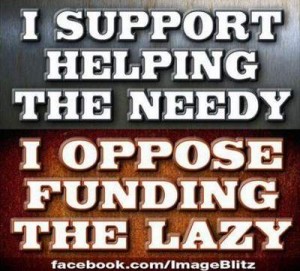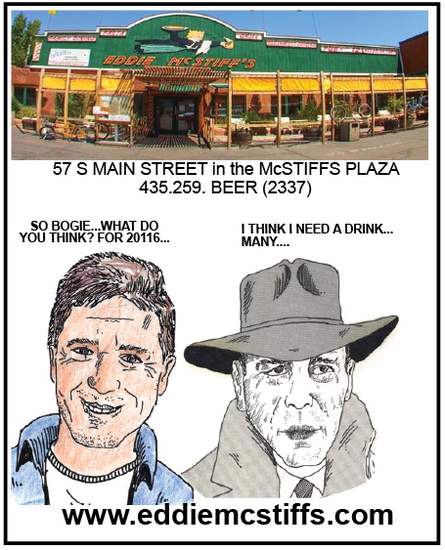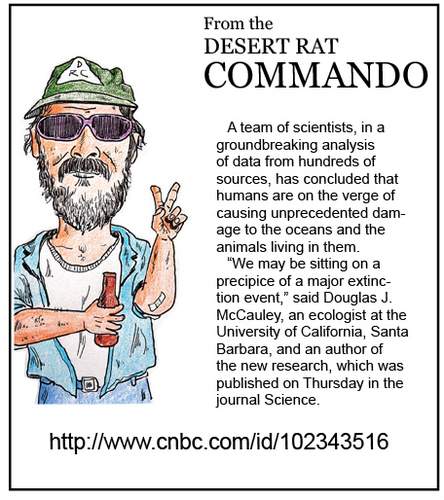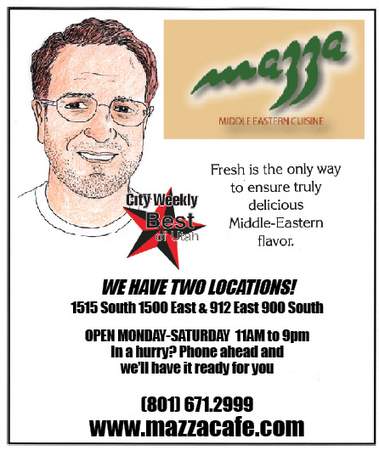Until the day my father died, he and I agreed on practically nothing. Once, almost two decades ago, on a visit home, he and I crossed swords on the issue of welfare. While I’ve never quite been the bleeding-heart liberal he believed me to be, on this particular day, Dad really pushed my buttons. He was ranting about the ever-growing number of people on food stamps—“They’re a bunch of welfare bums!” he shouted, punching the steering wheel as we drove back home from a ball game.
“All of them?” I asked.
“Every damn one,” he replied.
“Well, my friend Herb Ringer just started receiving food stamps. Does that make him a ‘bum’ too?”
My father didn’t flinch. “Yes,” he proclaimed. “He’s as worthless as all of your other welfare bum friends.”
My blood boiled. Here were the facts about Herb. First, when this family argument occurred, Herb was 81 years old. He had worked all his life, until retirement, as a clerk and manager of a small grocery store in Reno, Nevada. For thirty years, he lived with and cared for his mother and father. In the early 1960s, his father was diagnosed with cancer and Herb invested all of his life savings—$37,000—trying to save him. When Joseph Ringer died, in1963, Herb’s bank account was empty. (Two years later, Medicare was passed by Congress and signed into law by President Johnson. Had his father’s cancer come just a couple years later, Herb’s father would have been covered.)
Herb kept working, of course, and cared for his mother for another decade, until her death at 93. They had, all three of them, lived simply in a small trailer on a shady court in Reno. After his mother passed, he moved the Smoker trailer to Fallon, where he continued to live for the next 25 years. After retirement, Herb was trying to survive on his Social Security payments of $550 a month. At 80, his eyesight began to fade from macular degeneration and a few months later, he had to give up driving. All the while, he could barely make ends meet.
After years of Herb visiting me in Utah, I needed to come to him now. We paid a visit to the local social services office in Fallon and discovered there were variety of ways he could improve his situation. I asked the staff why he wasn’t already enrolled in these programs and they said, “Because he didn’t ask.” I said, “But he didn’t know these services existed.” They didn’t have an answer.
In any case, because Herb was now legally blind, his social security payments increased by $150 a month. He qualified for a subsidy for the fuel oil he used in the winter to heat his trailer. There was also a service available where someone would come to his home twice a week to help him clean and to make him a hot meal. And…he was eligible for food stamps. Herb bought himself a steak for the first time in 25 years. For the next few years, he claimed to feel like a rich man. And when he died, I discovered that he’d been saving a part of his monthly check—$700—for a rainy day.
* * *
For all but the most inflexible, hard-bitten and heartless foes of social welfare programs, Herb’s story would be noted as the  exception to the rule. Of course, people like Herb Ringer deserved assistance, welfare critics would insist, “We’re not talking about the ‘Herbs’ of the world. We’re talking about all the others. The REAL loafers and bums in our society.”
exception to the rule. Of course, people like Herb Ringer deserved assistance, welfare critics would insist, “We’re not talking about the ‘Herbs’ of the world. We’re talking about all the others. The REAL loafers and bums in our society.”
Fair enough, but how do we make that distinction among the vast numbers of people who seek assistance? I knew Herb was a man of integrity and honor, but how do we decide just who’s worthy and who isn’t? Who decides which ones are the ‘bums?’ Twenty years after my father and I nearly came to blows, the debate and the rhetoric continues.
Recently Speaker of the House John Boehner addressed the American Enterprise Institute in Washington, DC, to offer his views, and to weigh in on the issue of welfare. He said, “I think this idea that’s been born out the last – maybe out of the economy last couple of years that, ‘you know, I really don’t have to work. I don’t really want to do this, I think I’d just rather sit around.’ This is a very sick idea for our country.”
 And future presidential candidate, Senator Ted Cruz, complained, “Government is not the answer. You are not doing anyone a favor by creating dependency, destroying individual responsibility. 55 years ago, when my dad was a penniless teenage immigrant, thank God some well-meaning bureaucrat didn’t put his arm around him and say let me take care of you. Let me give you a government check and make you dependent on government.”
And future presidential candidate, Senator Ted Cruz, complained, “Government is not the answer. You are not doing anyone a favor by creating dependency, destroying individual responsibility. 55 years ago, when my dad was a penniless teenage immigrant, thank God some well-meaning bureaucrat didn’t put his arm around him and say let me take care of you. Let me give you a government check and make you dependent on government.”
Proponents of these programs insist that they are ‘a hand up,’ not a ‘hand out.’ Opponents scoff at the notion. The argument continues, year after year, decade after decade.
* * *
Many years ago, before I moved West, I worked briefly as a social worker for a city-funded agency called the ‘Child Development Services System.’ They called us ‘para-professionals’ because none of us–the on the ground case workers—had any formal training in the field. We were the bottom wrung staff, and we reported to bosses who had degrees in sociology or social work, or one of the other behavioral sciences. But we were the face-to-face contacts with the ‘clients.’ All of them were the children of ‘AFDC mothers,’—‘Aid to Families with Dependent Children,’ a federal assistance program, funded through Social Security, until its demise in 1996.
Usually we received referrals from the children’s teachers. Sometimes it was to deal with a physical problem–a health concern, or providing food assistance. Or it was to deal with emotional issues that the teachers thought were stemming from their home lives. Our job was to find a solution. Maybe the children were distracted in class because they couldn’t see the black board. It could be as simple as that, and scheduling an appointment with an eye doctor resolved the issue. Sometimes, as assistance money ran low, I’d get a call from a client in need of a trip to the Food Bank. And sometimes, the issues and the problems ran much deeper. Child abuse, violence in the home, drugs, teen pregnancy–they all happened on my short watch.
Of the dozens of mothers (and their children) that I dealt with during my short tenure at CDSS, three stand out in my memory. Each faced their lives and problems differently; other than the fact that they were in their 30s, had children and were on AFDC welfare, they had little in common. For the purposes of this story, I’ll call them Betty Caldwell, Mary Fullmer and Amanda Connor. I met all three of them during my first week on the job.
From our first meeting, Ms. Caldwell made it clear she planned to be off AFDC soon. She loathed the situation she found herself in. She was going to school, looking for a job and anxious to be on her own again. One day, I stopped by to visit and she proudly announced she was to start work the next week. She was delighted and when I did one last follow up, a month later, I could see Betty Caldwell was going to be alright.
Mary Fullmer was 31 years old. She had five children, the oldest was a girl, 15, who was already showing emotional issues in school. Ms. Fullmer, gaunt and haggard, looked a full decade older than her years . She always met me at the door and rarely let me inside her home. Mary was skittish and nervous, almost as if she were frightened, every time we talked. She always spoke with her hand over her mouth—her ex-husband had a habit of showing up on weekends, drunk and violent, and whatever frustrations he was experiencing in life, he took them out on Mary. One night, he knocked out all of her upper front teeth. She couldn’t smile, even on those rare occasions when she wanted to.
Mary was a lost soul. She had a good and kind and gentle heart, she loved her children and she wanted to be a good person, but the idea that she had any control of her life or future never occurred to her. Whatever self-confidence Mary might have once possessed had been beaten out of her years ago. Mary called me often, to help her get groceries, to take her children to the doctor, to deal with her daughter’s truancy. And to help her escape the never-ending violent visits by her ex. If we accomplished anything, CDSS via Medicaid, was able to arrange for an orthodontist to make a partial denture for Mary. The last time I saw her was the first time I’d ever seen her smile. Small blessings.
And finally, there was Amanda Connor. It was hard not to loathe that woman. She had seven children, with an eighth one due at any moment. But her interest in having more kids did not seem driven by a love for them. When I visited Ms. Connor at the hospital, she held up her new baby and declared, “YOU just made me an extra $85 a month, little darlin.’” She really knew how to play the system.
While she was in the hospital, her other kids were allegedly being cared for by an ‘uncle,’ who spent most of his time on the couch, watching tv and stone drunk. Or passed out. One day, I got a call from one of the children’s teachers. Patty, age seven, appeared to have some kind of serious injury to her chest. Through a patch of dirty gauze and tape, red inflamed streaks of infection were evident.
Patty explained that while her uncle was ‘asleep,’ she’d tried to make soup for herself. But she had spilled the pot trying to remove it from the stove, and scalded a wide area of her chest with boiling hot chicken noodle soup. Her uncle had not even cleaned the burn and had placed gauze over the second degree burns. Now it was inflamed and infected. I took her to the burn unit at Children’s Hospital.
All these years later, it’s still painful to recall Patty’s ordeal. She barely knew me, none of her family came along with her, and she was in excruciating pain as we entered the burn unit. Still, this seven year old child was as brave and stoic as anyone I’ve ever met. And as bad as her burns were, the previous ‘treatment’ of her injuries had only made her condition worse. The doctors told me they’d have to remove the gauze and tape, which was now stuck to Patty’s festering wounds, before they could begin to treat the burns themselves. I watched this tiny child walk with the doctor and a nurse, through a door, to face a treatment that I would find unbearable. Still, when she came back out, more than an hour later, she was dry-eyed. I wish I were that brave.
The burn doctor explained that I’d need to bring her back daily, for at least a week, so they could change the dressing and monitor the burns for signs of infection. And so each morning, I’d pick up Patty–her mother was now home but seemingly indifferent to her child’s condition—and went to the burn unit. The doctors told me that they’d never seen a braver kid and I grew so attached to Patty, it was difficult for me to take her ‘home,’ to the hell she faced.
But eventually, the treatments ended and the doctors were pleased with her recovery. They believed that with the treatment she had received, the burns would heal and they were even convinced that there would be no disfiguring scars. I don’t think any news has ever made me feel more relieved. But I saw Patty less frequently, and I found myself tending to other AFDC families and their problems. A few weeks later though, I stopped by to see Patty, just to let her know I hadn’t forgot her. But their apartment was empty and a neighbor told me they’d moved to California. He said they moved because, “the benefits were better out there.” I never saw Patty again.
So for those who loathe all forms of welfare, what’s the right thing to do here? It was apparent, even then, that if anyone was  using welfare as a ‘hand up,’ it was Betty Caldwell, the woman who was determined from the get-go, to get off the welfare rolls. Few would argue the point. Collecting AFDC payments was something temporary for Betty, until she could get her feet set more firmly to the ground and move on with her life. An easy call.
using welfare as a ‘hand up,’ it was Betty Caldwell, the woman who was determined from the get-go, to get off the welfare rolls. Few would argue the point. Collecting AFDC payments was something temporary for Betty, until she could get her feet set more firmly to the ground and move on with her life. An easy call.
But what about Mary Fullmer, the timid, abused woman with the five kids? She was a kind woman, but unable to stand up for herself, and incapable of providing the kind of parental guidance her children so desperately needed. She couldn’t take care of herself. She probably should have never had children. BUT SHE DID. She should have extricated herself from the dysfunctional and violent relationship she reluctantly maintained with her ex-husband. BUT SHE DIDN’T. She needed us for assistance as basic as acquiring food for her kids. We were able to help.
And finally, Amanda Connor. What a pathetic, wretched, heartless woman she was. I could see nothing redeeming in her at all. Being around Ms. Connor, listening to her brag about extra babies and boosting her welfare brought out the worst in me as well. I could feel my compassion abandoning me at just the thought of her. She seemed to care nothing for her children and simply used them to line her own pocket with as much ‘free government money’ as she could get her fists on. It’s people like her that give welfare a bad name.
And yet, because there was a social welfare system in place, we were also able to help her daughter. While Patty’s mother was trying to bleed that system in the worst way possible, it was the same system, at its best, providing assistance to a brave little girl who, without our help, would have been completely alone. I can’t help but feel good that we were there to make sure she recovered from her burns and that she’d grow to adulthood in good health, without disfiguring or debilitating scars.
* * *
It’s the extenuating circumstances, those murky grey areas that lie between hope and reality, and the realization that no situation is ever as cut and dried as we want it to be, that keeps me from making sweeping generalizations, either way, about social welfare programs and their beneficiaries. And yet, there are those recipients, those career beneficiaries, whose welfare habits benefit no one but themselves. There will always be the bona fide ‘welfare bums,’ the ‘lazy loafers,’ who never hold themselves accountable for their own actions, who always think the world owes them a helping hand, but who never appreciate the assistance. And it’s true, helping them doesn’t even provide some tangential benefit, the way we helped Patty. No, some will argue they are truly a drag on the world, on all of us who fund their continued parasitic existence.
So…what do we do? Shoot them? Throw them in jail for the rest of their natural lives? Flog them on the public square? Feed them to the pigs?
One could argue that there’s money to be made showing some level of tolerance. While it’s fair to say they didn’t earn their right to the assistance they receive, you could make the point that other hard working people do benefit, because the recipient puts all that undeserved largess into the economy–into food and gas and clothes and, sure, even iPhones and flat screen televisions. And don’t forget booze and smokes. Once, I reminded my father, a lifelong Sears employee, that every time he saw those ‘bums’ at his store, they were boosting his profit margin. It was the only time I think I ever caused him to pause and think.
But there is more than profit motives to consider here. As frustrating and infuriating as it makes me at times, we can’t just let them flounder, whether they ‘deserve’ to or not. We only need to realize that this is the way the world was, is, and will be. We can try to encourage self-reliance, but there will always be humans who just can’t, or won’t, make the cut. Were they cursed from birth? Did they come from a terrible family? Were their childhoods hell? Is it in their genes? Or is it simply ‘their fault?’
I don’t know. I do know that all of us were NOT created equal, that some of us benefit from that reality, and some of us suffer from it. But regardless of the circumstances, we can’t simply say to them: ‘pull yourselves up by your boot straps…or die.”
An old nun was once asked what Christianity meant to her. She reflected on the question for a moment and said, “Always help people who have less than you. And don’t hit anybody.” There was no caveat—she didn’t say, “help only those worthy enough.” And she’s right. Trying to help the ‘undeserving’ might not make them better people, but it would certainly make us lesser people if we didn’t try.
Jim Stiles is Founder and Co-Publisher of the Canyon Country Zephyr.
To comment, scroll to the bottom of the page.
Don’t forget the Zephyr ads! All links are hot!











Jim, glad I read this article after reading your Moab “Obit” story in this issue. The Moab evolution story was very depressing, and while parts of this article were difficult to read, I felt a lot better after finishing it.
Jim,
A nice essay. There will always be people gaming the system. The question is always — ‘do we throw the whole system out because X% cheat?” The right wing says “yes”. And as you say, what do you do with the scammers — shoot ’em?
I believe, from anecdotal evidence, that X is somewhere between 5 and 10%. To me, this is the price of “doing business”. Like any other business, welfare programs have a certain amount of waste and bureaucracy. But I believe that most people want to work and have a sense of self-esteem. I think it’s programmed in, mostly, but you’d have to ask an evolutionary biologist for why it’s been selected for, and why there are exceptions.
Keep of the good work.
Scott Hamilton (built our cabin in the LaSal’s almost 45 years ago, when I was 15 years old — my dad ran Glen Canyon and Cataract with Ken Sleight pre-lake)
It’s worse now than it’s ever been. Still feel the same? Nobody wants to work. Bunch of lazy eaters.
Well thought out and very well stated Thanks.
Gail and I have worked as behavioral health counselors with impoverished people for over 20 years. Stories like Herb’s are all too familiar to us. In addition, Jim, I think the three cases you encountered as a case worker describe the situation on the ground reasonably well. With this difference, however: I didn’t encounter many parents who made a career of working the system. Some yes, but in my experience the great majority of people on welfare, food stamps, or social security disability need the help. In fact, most need more help than they’re getting.
I’ve spend many a moon pondering why so many people have such hateful attitudes toward people in need. I’ve come up with two explanations. First, denial of their own vulnerability. They don’t want to admit that poverty can happen to almost anyone virtually any time; that they themselves may someday need to ask for help. Second, lack of empathy. Some people simply can’t or won’t put themselves in the position of a suffering person, and beyond that don’t understand people who can. That’s why they say compassionate people are “weak.” It only shows how completely they don’t understand.
This article is just a big ‘oh well, what can we do about the bums?’ it ignored the financial ramifications. The services aren’t free.. people who provide these Services need to be paid to do those job and one reason they aren’t paid well is because this is a money bleeding sector of government…. I think they system should be still in place but needs to be tied to volunteer work… So the client needs to volunteer for indoor or outdoor work, manual labor, tutoring, environmental cleanup.. Something, that generates a positive effect of society and not just fiscal drain.